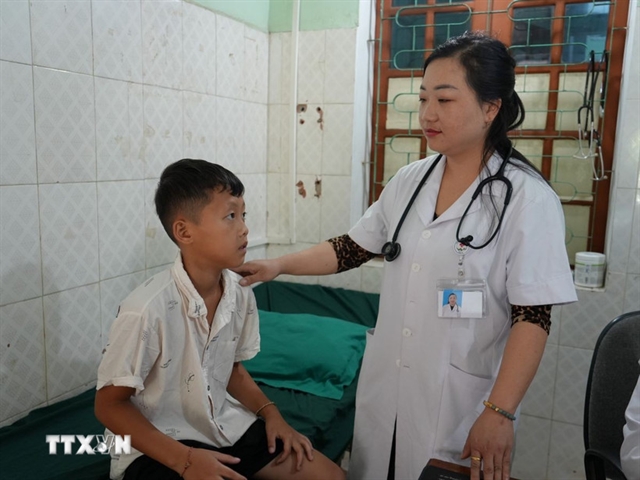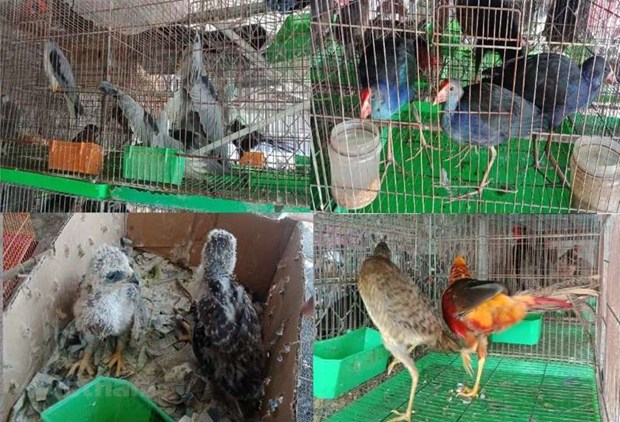 Society
Society


|
| Wild birds on sale at Thạnh Hoá Market in the Mekong Delta province of Long An. — VNA/VNS Photo |
HÀ NỘI — Nearly 70 per cent of infectious diseases are transmitted from animals to humans, the Ministry of Natural Resources and Environment (MoNRE) has stated in its latest document asking for tightened management over illegal wildlife, trafficking and trading in response to the pneumonia caused by COVID-19.
Local and international NGOs working on wildlife conservation and environmental protection have recently filed an open letter to Prime Minister Nguyễn Xuân Phúc, asking for the wildlife market to be shut down.
According to these organisations, many pandemics over the past 20 years had close ties viruses prevalent in wildlife.
Severe Acute Respiratory Syndrome (SARS) in 2002 and 2003 which infected some 8,000 people in 37 countries and territories and killed 774 people, was caused by a novel betacoronavirrus originating in bats and transmitted through gem-face civets (Paguma larvata) as intermediary hosts.
Middle East Respiratory Syndrome (MERS-CoV) which broke out in 2012, infected 2,494 people and killed 858, was caused by a coronavirus strain transmitted to humans from camels.
African swine fever which spread to China, Việt Nam and nine other countries and leading to severe economic losses is suspected to be from wild pigs in Africa.
To proactively prevent coronavirus and protect the country’s biodiversity, MoNRE requested ministries, state agencies and provincial people’s committees to accelerate monitoring over wildlife and illegal trading activities as well as raise public awareness to not have close contact with wild animals.
Wildlife centres are asked to tighten quarantine, sterilise animal lodgings and keep in contact with local authorities on updated information related to the virus’ development. — VNS




